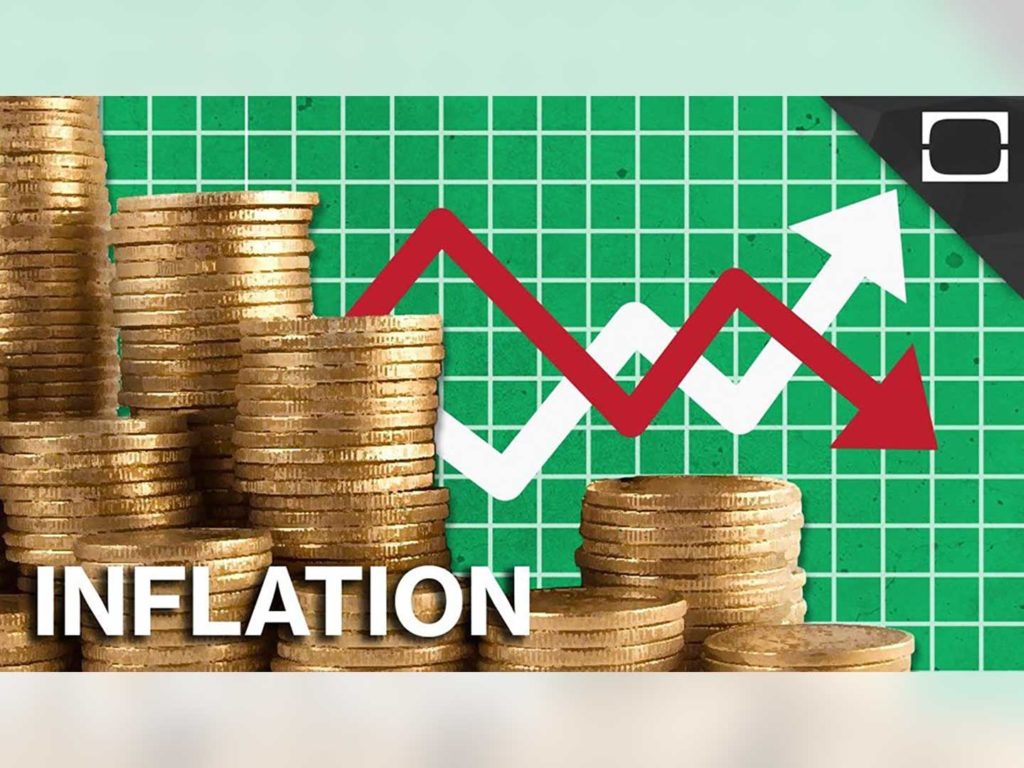Search
What is Inflation? How is it Calculated?
December 29, 2017

There are two main indices that have been considered for the measurement of inflation in the history of Indian economy. These are the Wholesale Price Index (WPI) and the Consumer Price Index (CPI).
Wholesale Price Index (WPI)
WPI is used to compare the prices at the wholesale level. It was used by the central bank to develop its monetary policies until April 2014, when the CPI was declared as the new standard for inflation measurement.
WPI considers a set basket of wholesale goods, a total of 697 items, and takes the combined price into account.
The wholesale basket is made of three groups:
- Manufactured products- 65%
- Primary articles- 20.1%
- Fuel and power- 14.9%
Consumer Price Index (CPI)
The CPI takes into account only 260 commodities and tracks the price changes at the retail level.
The Ministry of Statistics and Programme Implementation collects the prices of the CPI commodities on a regular basis and records the changes if there are any.
Why did the government switch to CPI from WPI?
To run an economy efficiently, the government needs to monitor the changes in the prices of a variety of commodities. So, the government started with WPI, in which it checked with the manufacturers to see what prices they offered at the wholesale level.
This worked well for quite some time until the government realized that the change in the wholesale rates doesn’t quite reflect what the consumers are getting. So, they switched to CPI to get a better idea of what kind of rates the citizens are paying for their goods.
What is Inflation?
Simply put, when the prices of goods and services increase, it’s called inflation. Similarly, if the prices decrease, it’s called deflation.
Both inflation and deflation are typically measured in percentage. So, if 1 liter of petrol cost Rs. 65 a year ago, and now Rs. 70, then the inflation would be 7.69%.
Note- When the inflation of all the main commodities like food, petrol, gas, etc. are taken into account, it’s called headline inflation.
Important Links:
- Post Graduate Diploma in Banking & Finance: https://new.ask.careers/courses/post-graduate-diploma-in-banking-finance/
- 4-IN-1 Professional Diploma in Banking, Financial Services & Insurance (PDBFSI): https://new.ask.careers/courses/professional-diploma-in-banking-management/
- Mumbai: https://new.ask.careers/cities/mumbai/
- Lonavala: https://new.ask.careers/cities/lonavala/
- Ahmedabad: https://new.ask.careers/cities/ahmedabad/
- Vadodara: https://new.ask.careers/cities/vadodara/
- TSCFM: https://new.ask.careers/institutes/tscfm/
Courses
-
MBA for Executives
-
testssd
-
testssd
-
testssd
-
testssd
-
testssd
-
BBA from UK University
-
Banking course + Job
-
MBA from ARU, Anglia Ruskin University (UK)
-
4-IN-1 Professional Diploma in Banking, Financial Services & Insurance (PDBFSI)
-
MBA from HSNC University (Mumbai, India)
-
Sage Foundation - Professional Diploma in Banking
-
3-in-1-management-program
-
Post Graduate Diploma in Banking & Finance
-
Post Graduate Diploma in Digital Marketing
-
Post Graduate Diploma in Integrated Marketing, Advertising & Communication
-
4-IN-1 Professional Diploma in Banking, Financial Services & Insurance (PDBFSI)
-
Professional Diploma in Digital Marketing
-
Professional Diploma in Real Estate Management
-
Professional Diploma in Photography
-
Certificate in Business English
